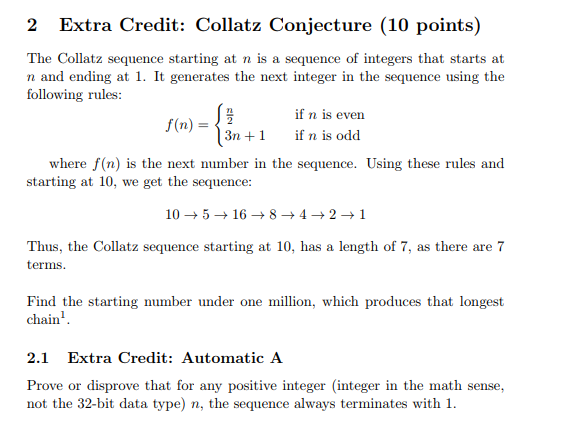Answered step by step
Verified Expert Solution
Question
1 Approved Answer
I need help! How do I prove this mathmatically? 2 Extra Credit: Collatz Conjecture (10 points) The Collatz sequence starting at n is a sequence
I need help! How do I prove this mathmatically?

Step by Step Solution
There are 3 Steps involved in it
Step: 1

Get Instant Access to Expert-Tailored Solutions
See step-by-step solutions with expert insights and AI powered tools for academic success
Step: 2

Step: 3

Ace Your Homework with AI
Get the answers you need in no time with our AI-driven, step-by-step assistance
Get Started


